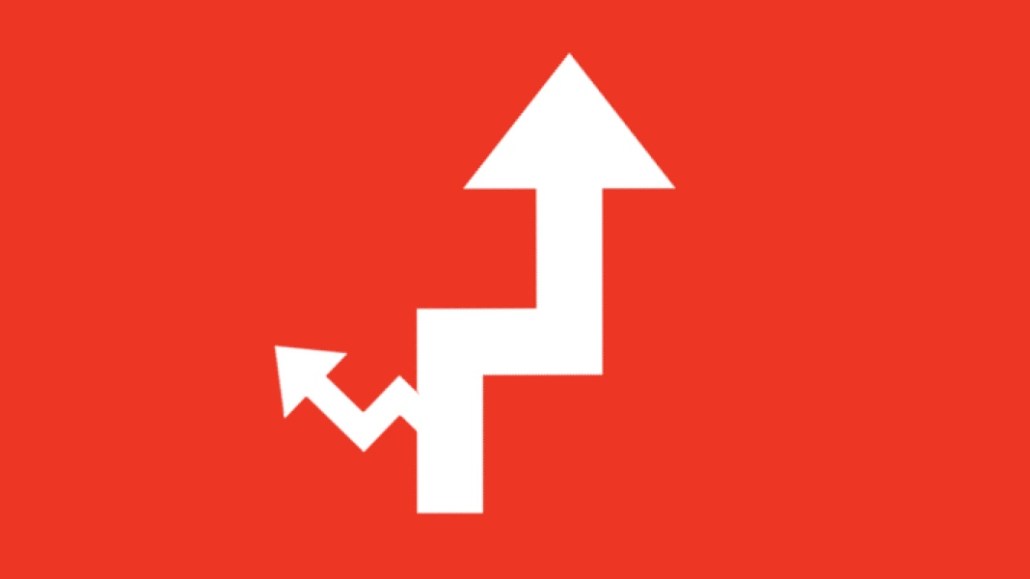Secure your place at the Digiday Publishing Summit in Vail, March 23-25
‘They wanted to unload it bad’: Why HuffPost made sense for BuzzFeed – and Verizon Media Group

This week, BuzzFeed acquired something that has grown increasingly important to them — access to an older audience.
On Thursday, Nov. 19, BuzzFeed announced it was acquiring HuffPost from Verizon Media Group in an all-stock transaction as part of a strategic partnership, which will see Verizon Media Group become a minority owner of BuzzFeed and allow the two companies to explore partnerships around advertising, commerce and content distribution across the two media companies.
The move, which some framed as Verizon Media Group paying BuzzFeed to take the unprofitable HuffPost off its hands, gives BuzzFeed a complementary battalion of reporters it can use to expand its news coverage after multiple rounds of layoffs to BuzzFeed News, which is also unprofitable, according to the Wall Street Journal.
While BuzzFeed News and HuffPost will remain independent from each other, according to a memo sent out by BuzzFeed News editor-in-chief Mark Schoofs, BuzzFeed effectively gets to choose its direction by picking HuffPost’s new editor, a job that has been vacant since Lydia Polgreen left in early March.
The partnership also gives BuzzFeed a direct pipeline into a larger, loyal base of older internet users who can complement and diversify BuzzFeed’s referral traffic footprint, particularly for its news and commerce content, the latter of which has shown strong growth through this turbulent year.
While HuffPost no longer boasts the same scale it had when AOL acquired it for $315 million in 2011, it still has a healthy audience. Over the past three months, HuffPost’s site has attracted a monthly average of 81 million unique users, according to SimilarWeb, about four times the size of BuzzFeed News’s audience over that same period. A substantial percentage of that audience — 57% of its desktop visitors — went there directly, also per SimilarWeb.
And it’s not an especially young audience — 37% of visitors are over the age of 45, according to SimilarWeb. But it’s a more affluent cohort than BuzzFeed’s, BuzzFeed CEO Jonah Peretti told employees Thursday afternoon. Peretti added that the audiences for BuzzFeed News and HuffPost do not overlap, effectively giving BuzzFeed a news audience of close to 100 million monthly unique users.
The partnership between BuzzFeed and Verizon Media Group should offer lots of commerce opportunities as well. BuzzFeed has managed to turn its commerce operation into a strength — it is on pace to generate more than $50 million in revenue this year — but it has done so largely with deals aimed at younger, price-conscious readers and audiences.
Being able to focus on an older audience with deeper pockets could drive growth still further. Over the past year, Verizon Media’s commerce revenues have grown more than 250%, albeit from a much smaller base, thanks partly to integrations made to Yahoo Mail and Yahoo’s homepage, and to many people starting to buy things online for the first time in the face of the coronavirus crisis.
Whether BuzzFeed can find breathe new life into HuffPost or not, it had become unwelcome at Verizon Media Group, according to multiple former employees. HuffPost was almost never mentioned in corporate emails highlighting achievements and progress across Verizon Media Group, and then-editor in chief Polgreen told her employees directly that HuffPost was not profitable. “They wanted to unload it bad,” said one former employee on condition of anonymity.
The Financial Times reported last fall that Verizon Media Group was looking to sell HuffPost. One person familiar with the matter said HuffPost and BuzzFeed had discussed a cash sale, though the amount of money offered was too low, that person said.
The acquisition comes at a moment when BuzzFeed is on the precipice of turning a profit, after years of cost-cutting. Peretti announced in a memo earlier this month that BuzzFeed should have flat revenues this year.
This story has been updated. An earlier version said BuzzFeed was on the precipice of breaking even.
More in Media

Media Briefing: As AI search grows, a cottage industry of GEO vendors is booming
A wave of new GEO vendors promises improving visibility in AI-generated search, though some question how effective the services really are.

‘Not a big part of the work’: Meta’s LLM bet has yet to touch its core ads business
Meta knows LLMs could transform its ads business. Getting there is another matter.

How creator talent agencies are evolving into multi-platform operators
The legacy agency model is being re-built from the ground up to better serve the maturing creator economy – here’s what that looks like.








